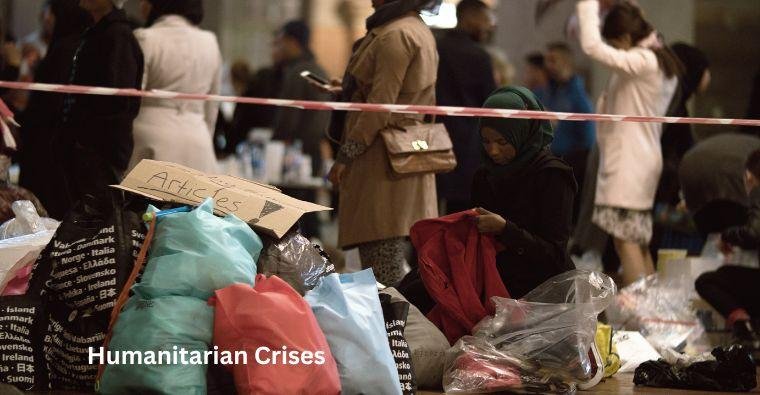The Syrian Refugee Crisis
The Syrian civil war, now in its thirteenth year, remains one of the most devastating humanitarian crises of our time. Over half of Syria's pre-war population has been displaced, with millions seeking refuge in neighboring countries like Turkey, Lebanon, and Jordan. The influx of refugees has strained resources and infrastructure in these host countries, creating significant economic and social challenges. International organizations, including the United Nations and various NGOs, continue to provide critical support, but the scale of the crisis necessitates ongoing global cooperation and funding.
The Rohingya Crisis in Myanmar
Another major humanitarian crisis is the plight of the Rohingya people in Myanmar. Since 2017, over 700,000 Rohingya have fled to Bangladesh to escape persecution and violence in Myanmar's Rakhine State. Living in overcrowded and under-resourced refugee camps, the Rohingya face dire conditions, including limited access to healthcare, education, and basic necessities. Despite international condemnation and calls for accountability, a long-term solution remains elusive. The crisis highlights the need for robust international mechanisms to protect vulnerable populations and address human rights violations.
The Famine in Yemen
Yemen is experiencing one of the world's worst humanitarian crises, driven by a protracted conflict that has devastated the country. The war has led to widespread food insecurity, with millions of Yemenis on the brink of famine. Malnutrition is rampant, particularly among children, and the healthcare system is in shambles. Humanitarian aid organizations struggle to deliver assistance amid ongoing hostilities and blockades. The international community faces a moral imperative to increase aid and work towards a peaceful resolution to end the suffering in Yemen.
Natural Disasters and Climate Change
Natural disasters, exacerbated by climate change, are causing unprecedented humanitarian crises worldwide. In 2023, severe floods in Pakistan displaced millions and destroyed infrastructure, highlighting the vulnerability of communities to climate-induced disasters. Similarly, wildfires in Australia and the United States have wreaked havoc, displacing thousands and causing extensive environmental damage. These events underscore the urgent need for global cooperation on climate change mitigation and adaptation strategies to reduce the frequency and impact of such disasters.
Economic Instability and Food Insecurity
Economic instability in various regions also contributes to humanitarian crises. In Venezuela, hyperinflation and political turmoil have led to severe shortages of food and medicine, prompting a mass exodus of citizens to neighboring countries. Sub-Saharan Africa faces chronic food insecurity, with millions experiencing hunger due to factors such as drought, conflict, and economic mismanagement. Addressing these crises requires comprehensive international support, including economic aid, development programs, and efforts to promote political stability.
International Response and Challenges
The international community plays a crucial role in responding to humanitarian crises, but challenges abound. Funding shortfalls often hinder relief efforts, and political complexities can impede the delivery of aid. Coordination among international organizations, governments, and NGOs is essential to ensure effective and timely assistance. Moreover, there is a need for long-term solutions that address the root causes of crises, such as conflict resolution, sustainable development, and climate action.
Humanitarian crises are a global concern that demands collective action. From the Syrian refugee crisis to the famine in Yemen, these emergencies highlight the interconnectedness of our world and the shared responsibility to support those in need. By enhancing international cooperation, increasing funding, and addressing the underlying causes of crises, the global community can work towards a more resilient and compassionate world.




